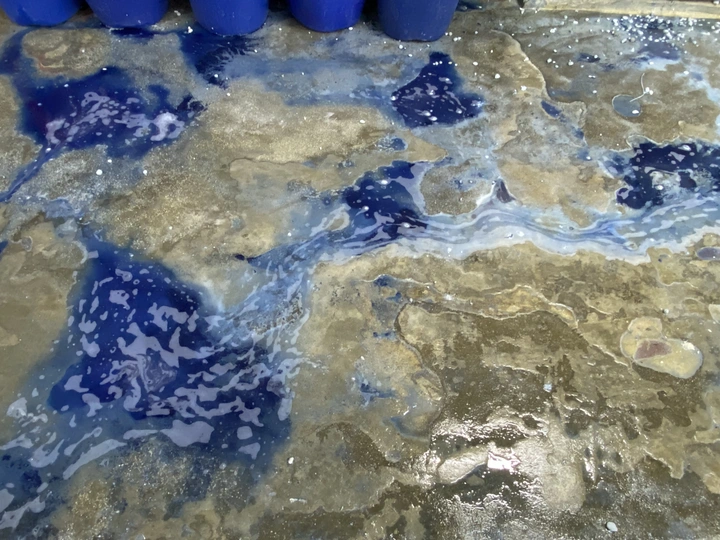The Denim Opera

Tamar Levit
the Özak resistance
We are Tamar Levit and Yaën S. Levi, working our way around the seam lines of fashion, design research, and performance art to speculate on how personal, social and political systems manifest themselves through clothing.
We ventured into the histories and appearances of wearables; clothing, dress codes, and uniforms, (items designed by society and time at large) relearning methodologies from the often overlooked common practice of wearing. The history and current flow of what people wear are based on social and moral protocols as well as economic realities; grounded in sensorial genealogy and phantasmagoria.
These we collect via site visits, interviews, academic research, somatic and sartorial scores. We then compile these histories into spatial-performative (sometimes wearable) formats.
We are, Tamar and Yaën, parents, fighters, lovers, based in and around Brussels. Graduates of the fashion department in Shenkar College, Ramat Gan (2009/2010), and of the post master program a.pass, Brussels (2020); Participated in the Jan Van Eyck academie (2022-3), Maastricht. Our artistic work was presented in places such as Buda art center, Kortrijk; Kanal Center Pompidou in Brussels; n0dine, Brussels; Tisch gallery, New York, and the Tel Aviv Museum of Art. Our pedagogical track record includes workshops and guest lectures at IUAV university, Venice; the Royal Academy; Antwerp, Maastricht Academy of Dramatic Arts; Parsons, New York; ArtEZ academie, Arnhem; Cranbrook academy, Michigan; Stockholm University of the Arts, and more.
We propose The Denim Opera, a site-responsive sonic scénographie.
Jeans—an omnipresent garment—are both tangible commodities embedded in global economic circuits and analog entities: mediators between bodies, objects, spaces, and geographies. We treat denim as palimpsest—its diagonal twill and distressed indigo, its protocols of wear and dreams, its washes and flames—of violence and resistance. This textile becomes our embodied spatial script.
The Denim Opera unfolds in evolving chapters, each probing the industry through a distinct medium—participatory, performative, material, and audiovisual. This chapter centers on voice. Our research led to a collaboration with blacklisted textile workers in Urfa, Turkey—women who resisted harassment and systemic abuse in a Levi’s supplier factory (Özak). Together, we propose co-composing a choir: a choral language shaped from their testimonies, gestures, and struggles.
This is not only a feminist labor act but a spatial inquiry:
What architectures emerge when breath becomes structure?
Can jeans’ formalism become a score of solidarity?
What does a body-choir make possible—socially, materially, acoustically?
How can fire—industrial and symbolic—be re-read as a tool for rebirth?
A pilot workshop is planned for October 2025 in Antep, Turkey, where we’ll explore voicing textures, singing pockets, stonewashed rhythms, and shared embodiment. Together, we’ll write verses from fragmented testimonies—of exploitation and refusal, material joy and sorrow.
We look to LINA for mentorship and institutional dialogue to expand this chapter—testing how collective voices can unsettle hierarchies and activate solidarities beyond their origin. How might these narratives move beyond folklore?
Opera here is method, not genre—a structure that ruptures hierarchy through resonance. The Denim Opera does not resolve—it reverberates. It rehearses alternative endings, where power is no longer centralized, but collectively sung.